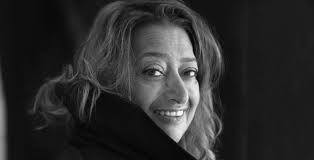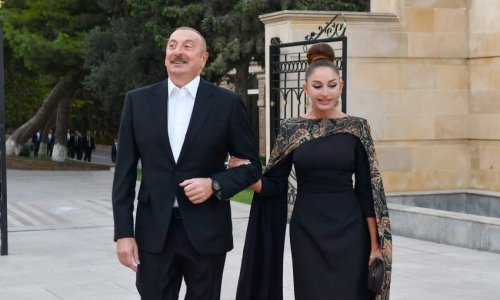Hadid's firm said she died Thursday in a Miami hospital. She had contracted bronchitis earlier this week and had a heart attack while being treated.
Born and raised in Baghdad, Hadid studied mathematics at the American University of Beirut before enrolling at the Architectural Association in London in 1972.
She worked for the groundbreaking Dutch architect Rem Koolhaus before setting up London-based Zaha Hadid Architects in 1979.
Hadid designed buildings around the world — though relatively few, she often noted, in Britain. Her projects included an innovative BMW plant in Leipzig, Germany; sleek funicular railway stations in Innsbruck, Austria; the glittering Guangzhou Opera House in China; MAXXI, the National Museum of 21st Century Arts in Rome; and the strikingly curved Heydar Aliyev Center in Baku, Azerbaijan.
Her buildings were always talking points, and sometimes controversial. The Dongdaemun Design Plaza in Seoul was compared by detractors to an ugly spaceship that had made an emergency landing. Last year the Japanese government revoked her commission to build the stadium for the 2020 Tokyo Olympics amid spiraling costs.
She twice won Britain's Stirling Prize for architecture and in 2004 became the first woman to win the Pritzker Prize, known as the "Nobel prize of architecture."
The Pritzker jury praised her unswerving commitment to modernism and defiance of convention.
Like all architects, Hadid sometimes struggled to have her ambitious designs built. She acknowledged that some of her early designs had posed engineering challenges.
"I used to like buildings floating," Hadid told the BBC last month. "Now I know that they can't float."
She was also unremittingly blunt and forthright — qualities not always relished in British society.
Earlier this year she was awarded the Gold Medal by the Royal Institute of British Architects. Architect Peter Cook said in his citation that "in our culture of circumspection and modesty her work is certainly not modest, and she herself is the opposite of modest."
"Such self-confidence is easily accepted in filmmakers and football managers, but causes some architects to feel uncomfortable," he said. "Maybe they're secretly jealous of her unquestionable talent."
Although Hadid said she felt something of an outsider in British architecture — a woman, a foreigner and an innovator — she was made a dame, the female equivalent of a knight, by Queen Elizabeth II in 2012.
"I'm not against the establishment, per se," she told the BBC. "I just do what I do and that's it."
www.ann.az
Follow us !











